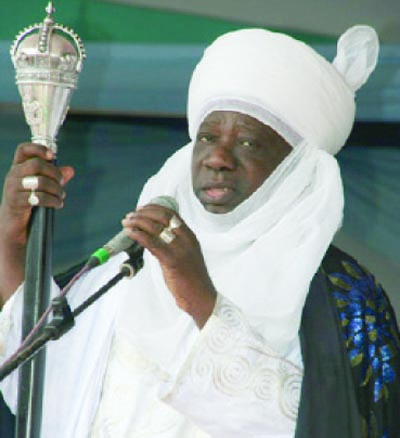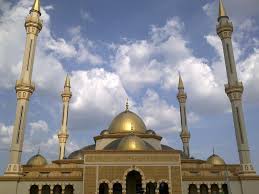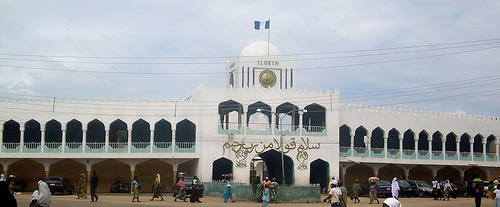After reading the memorandum sent by the leaders of the Yoruba people of Kwara State to the National Conference, I must repeat much of what I once wrote in this column about the history of the Yoruba of Ilorin and of Kwara. The Fulani never conquered Ilorin nor invaded Yorubaland. These historical facts need to be emphasized and re-emphasized.
Ilorin was a small town in the Oyo Empire by the beginning of the 19th century. Afonja, Baale of Ilorin, who also held the title of Are Ona Kakanfo of the Oyo Empire, rebelled against his king, the Alafin of Oyo, in 1817. (There is no space here for the reasons for his rebellion). In order to sustain his rebellion, he was desperate to build a large and powerful army. To that end, he did a number of desperate things.
First, he invited the people of nearby villages to move to Ilorin and turn Ilorin into a large town. Many people so moved, but most refused.
Secondly, he reached out to many prominent friends all over the Oyo country, and invited them to come and live in Ilorin. Some accepted his invitation and came. Among these was a rich trader named Solagberu from Kuwo. Another was a man named Alimi, a Fulani man who had long lived in the Oyo country peddling charms from town to town. Afonja employed Alimi to make charms for him and his army.
Thirdly, Afonja decided to exploit a religious situation that was causing trouble in the country at the time. A Jihad movement had started in Hausaland in the north in 1804, generating wars and stormy Islamic evangelism there. It was started and led by an immigrant people called Fulani. The Fulani immigrants were few among the large Hausa nation, but very many of the Hausa who were already Muslims sided with the Fulani – and thus made it possible for the Fulani to defeat the ancient Hausa kings and make themselves rulers over Hausaland.
Some of the violent Jihadist preachers trickled south into the Oyo country. Everywhere they came, they were causing a lot of commotion by preaching violent and disrespectful sermons against the Oyo kings and chiefs, and against Yoruba culture in general. Yoruba people, with their tradition of religious tolerance, were alarmed; and angry crowds began to attack the preachers. Afonja decided to exploit the situation by issuing a general invitation to the Muslims to flee to him in Ilorin, promising to give them protection there. Thousands of frightened Muslims fled to Ilorin, and Afonja trained many of them for his army. (Afonja himself did not intend to convert to Islam, and he never did).
Fourthly, most rich Oyo families had Hausa, Nupe and Fulani slaves – used mostly in farming, trading, livestock rearing, etc. Most were Muslims.
Afonja decided to exploit this also. He issued a proclamation saying that if any slaves ran away from their owners and came to him in Ilorin, he would give them freedom and protection there. Large numbers of slaves, mostly Hausa, fled to Afonja, and he trained some of them for his army.
Afonja thus had his large town and large army. Most of his army’s commanders and soldiers were Oyo Muslims. A few of the soldiers were Muslim Hausa – all slaves recently set free by Afonja. But many of his Hausa soldiers were unruly. He warned or threatened them repeatedly, but with no result. When he at last decided to discipline them, they mutinied. Afonja was killed in the mutiny – in 1823.
Meanwhile, while Alimi had been making charms for the army, he had become a friend to many of the Oyo commanders who were Muslims, and these hadmade him Imam (Islamic teacher and preacher) for the Muslim community in the army. After Afonja›s death, the same friends gradually made their Imam the ruler of Ilorin. They also created some officers among the Hausa soldiers – for instance, Balogun Gambari. The powerful men doing all these things were Oyo.
That then is how Oyo people made a Fulani man the ruler of Ilorin. When Alimi died, his elder son, Abdulsalam, was elevated to his father’s position by his father›s powerful Oyo Muslim friends. Adulsalam had lived in the Jihad in Hausaland and had only recently come to live with his father in Ilorin. He knew that the Jihad had made the Fulani the rulers of Ilorin – with a Fulani Sultanate based in Sokoto and quasi-independent Fulani Emirs in the separate Hausa kingdoms. So, after he was made ruler of Ilorin, he sent to Hausaland to announce that he had established an Emirate in Ilorin and to ask that his Emirate should be accepted as part of the Fulani Sultanate. In this way, Ilorin became a Fulani Emirate, ruled by a Fulani family.
Ilorin was, in population, still an Oyo town – probably over 95% Oyo in population. And Ilorin was never conquered or even invaded by any Fulani army. Those influential Oyo men who made Alimi and his son the rulers of Ilorin did so out of fervour for their Islamic faith.
When the news of the happenings in Ilorin spread all over the Oyo country, people were shocked to hear that Ilorin people had made the family of an obscure Fulani charm peddler their rulers.
Therefore, people formed armies to go and subdue Ilorin and flush out the Fulani impostors. None of these invasions of Ilorin succeeded. The invading armies were poorly organized, and, moreover, the old Afonja army defending Ilorin was just too powerful. In fact, in the end, the Ilorin people, in order to ensure perfect protection for their fervently Muslim town, decided to go out and conquer most of Yorubaland (all the way to the sea coast), and make all of it a Muslim empire ruled from Ilorin. Their army marched out in about 1838, conquering town after town towards the south, and causing mammoth streams of refugees. Till today, most Yoruba people still call this Ilorin invasion a Fulani invasion of Yorubaland. But it was not a Fulani invasion at all; it was an attempt by the predominantly Yoruba Muslim people of Ilorin to conquer and Islamize the rest of Yorubaland.
The victorious Ilorin march southwards ended suddenly in 1840. The refugees who had gathered in the Egba village of Ibadan had quickly become a large town. Their army marched out and met the Ilorin army in Oshogbo in 1840, and totally destroyed them, capturing many of their commanders. From then on, the power of Ilorin was more or less over, and Ilorin never dared again to face the Ibadan army in battle.
In the following years, Ibadan became the most powerful state in Yorubaland, and established control over the Oshun valley, Ife, Ijesa, Ekiti, Akoko, Igbomina and parts of Iyagba. Ilorin continued to be ambitious to control some territory in its immediate neighbourhood – in nearby Igbomina and Ibolo (especially Offa); but they feared Ibadan. In 1877, the Ekiti, Ijesa, Igbomina and Akoko revolted against Ibadan’s rule, and the Kiriji War started, keeping all these peoples and Ibadan busy until 1893. Ilorin took advantage of this and established some feeble control over parts of Igbomina and Ibolo.
However, at home in Ilorin itself, a proper Emirate could not develop. The powerful Yoruba war chiefs wanted to re-establish the traditional Yoruba political system whereby the chiefs in a kingdom select their king. The Emirs resisted. By 1895, the chiefs were winning the contest grandly – a situation which forced the Emir Momoh to commit suicide after setting his palace on fire. The victorious chiefs then installed Sulaiman as Emir. This was the situation when the forces of the British Royal Niger Company came and conquered Ilorin in 1897.
In the years that followed, it was the British that established Ilorin as a full-fledged emirate, making the Ilorin Emir like the Emirs of Hausaland. The Emir then took advantage of that to establish all sorts of Emirate-type control over Ibolo and northern Igbomina.
In short, Ilorin was never conquered (was never even invaded) by the Fulani. Ilorin is more than 90% Yoruba in population. The Igbomina, Ibolo, and Ekiti of Kwara, because they have hated the imposture of the Ilorin Emirs since the beginning of British rule, tend to be usually cool towards Ilorin. But, now, with the National Conference, all of that will, hopefully, change.
I need to add this note: The question about Ilorin is very likely to become a major bone of contention between the Yoruba and the North at the National Conference. We need to educate our people in preparation for this. I find, therefore, that this article on the subject has to be somewhat longer than the usual 1120 words, and I should be grateful if you would accommodate it together as one continuous piece.
Source Nigerian Tribune, April 6, 2014














